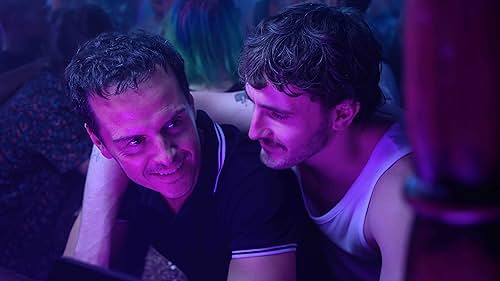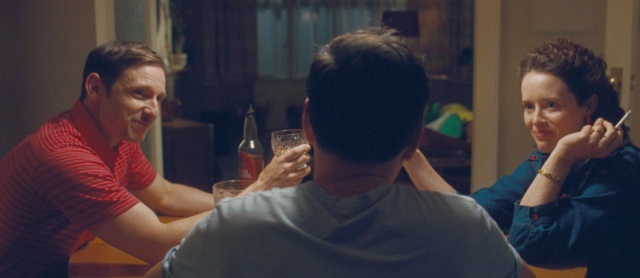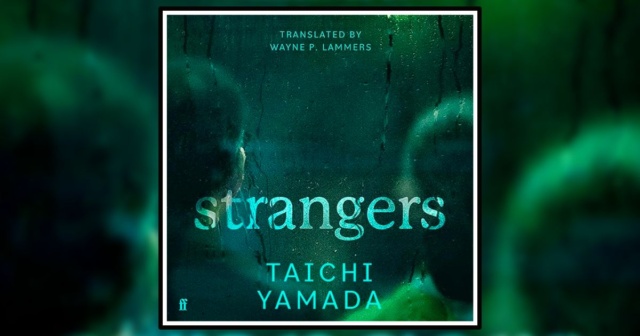Review: ‘All of Us Strangers’ is a Heart-wrenching Daydream

As a disclaimer, when it comes to the subject of LGTBQ, there are far better voices to discuss this film, especially among The Cosmic Circus writers. After seeing All of Us Strangers, it was a wish that this writer had someone like Head Writer Brian Kitson to discuss the movie’s themes. What did it mean to them? How accurate are the details?
For transparency, this reviewer is straight. Living as a member of the LGTBQ+ community is not a notion that I can relate to directly. But indirectly, as a minority who navigates a world of friendships and romances through the confines of a wheelchair, the themes of disconnection within All of Us Strangers ring true.
All of Us Strangers speaks on the loneliness of being different among family members, social groups, and society. The film’s message is not intended to be universal, but the lonely feeling of not fitting in is relatable. Not because of a choice but because of something uncontrollable, whether it’s a difference of skin color, a physical limitation from birth, or the innocent act of loving another. Through Andrew Scott’s captivating performance and Andrew Haigh’s flawless dreamlike approach, these topics are explored confidently through the eyes of a man reflecting on himself as a son and a romantic partner.
[Warning: spoilers from All of Us Strangers are below!]
All of Us Strangers: the story
Directed and written by Andrew Haigh (adapted from a novel by Taichi Yamada), All of Us Strangers mostly centers around Adam (Andrew Scott), a reclusive screenwriter who spends much of his time inside a massive London apartment. The building looks like an expensive hotel, but as Adam leaves and returns to the building, it’s almost like no one else lives there.
A surprising encounter occurs as the fire alarm echoes through the building, at which point Adam becomes acquainted with his drunk and flirtatious neighbor, Harry (Paul Mescal). At first, Adam chooses to keep his guard up and decline any connection to Harry. Until something in his daily routine changes, and Adam decides to take a chance on him.
What exactly changes? Adam begins to take a train to the location where he grew up. Each day, he spends intimate time with his mother (Claire Foy) and father (Jamie Bell), discussing life, the past, and possible romances. All of the subjects a parent would hope to catch up on. The only issue is Adam’s parents have been dead for 30 years.

Navigating an era of loneliness
Throughout All of Us Strangers, we are treated to two different realities. In one story, we are in the apartment where Adam is living out an endearing romance with Harry, and in the other, he spends time with his parents. It’s in the duality of these narratives that the story feels highly layered with commentary.
As humans, most of us feel like lost children without our parents. Simultaneously, the childhood we endured can impact our future relationships. And to add an extra layer, we live in one of the loneliest times in history due to technology, division, and so much more.
The script never provides an easy answer to these scenarios. In a sense, the surrealism is intentional because, for Adam, nothing feels natural regarding the past and present. His past tragedies are difficult to cope with, so we, as the audience, are brought into a fantasy where he still converses with them.
The conversations are meaningful and never expository. When Adam talks with either his mother or father, it adds new depth that was not there prior. We discover small nuggets of their relationship and how it formed the lost, lonely man he became in the present moment.
Tenderly executed powerhouse performances by Andrew Scott, Paul Mescal, Claire Foy and Jamie Bell
All of Us Strangers has outstanding performances, which are both subtle and multidimensional. Andrew Scott, who plays Adam in the film, delivers a career-defining performance, using body language to convey essential aspects of the character. It’s hard to believe this is the same actor who portrayed Moriarty in Sherlock.
There are moments in the film where Scott portrays Adam as a vulnerable, abandoned child, and his eyes convey this feeling effortlessly. Additionally, Scott’s identity as a member of the LGTBQ community adds an extra layer of authenticity to the character’s emotional journey.

Jamie Bell and Claire Foy also do a lot of heavy lifting here. Both of them are exceptional actors who bring their best to the table. Bell portrays the father confronting his inner demons through his child’s struggles. He is a man who loves his son but also carries the guilt of being a possible bigot in his past. On the other hand, Claire Foy plays the mother, who is protective and loving but also slightly judgmental.
Mescal is great yet slightly underused because of the intended narrative. This being said, the chemistry between Scott and Mescal is wonderfully captured.
All of Us Strangers is a heart-wrenching daydream
All of Us Strangers is like a warm blanket of empathy for those who feel rejected or abandoned. At the same time, Andrew Haigh’s film might feel meditative to an extreme for some. Like The Boy and the Heron, the narrative is intentionally abstract in its revelations. For some, this will be perplexing. But for this writer, it made the experience meatier in its messaging.
All this said, All of Us Strangers is one of the best movies this year. The script is audacious, the performances are some of the best seen in 2023, and the themes explored are unforgettable. It’s a beautifully made, heart-wrenching daydream composed as a love letter to the lonely hearts of our time.
All of Us Strangers is currently in theaters! Let us know on social media @mycosmiccircus or in The Cosmic Circus Discord if you plan on seeing this film!
Books: Strangers by Taichi Yamada is a Simple Yet Haunting Ghost Story




